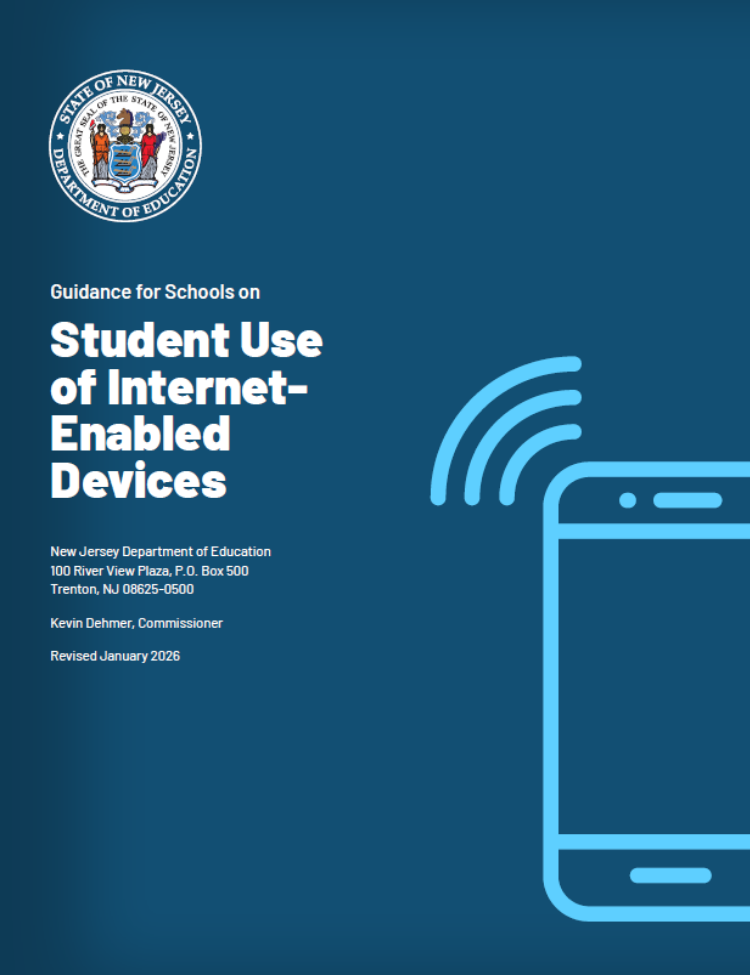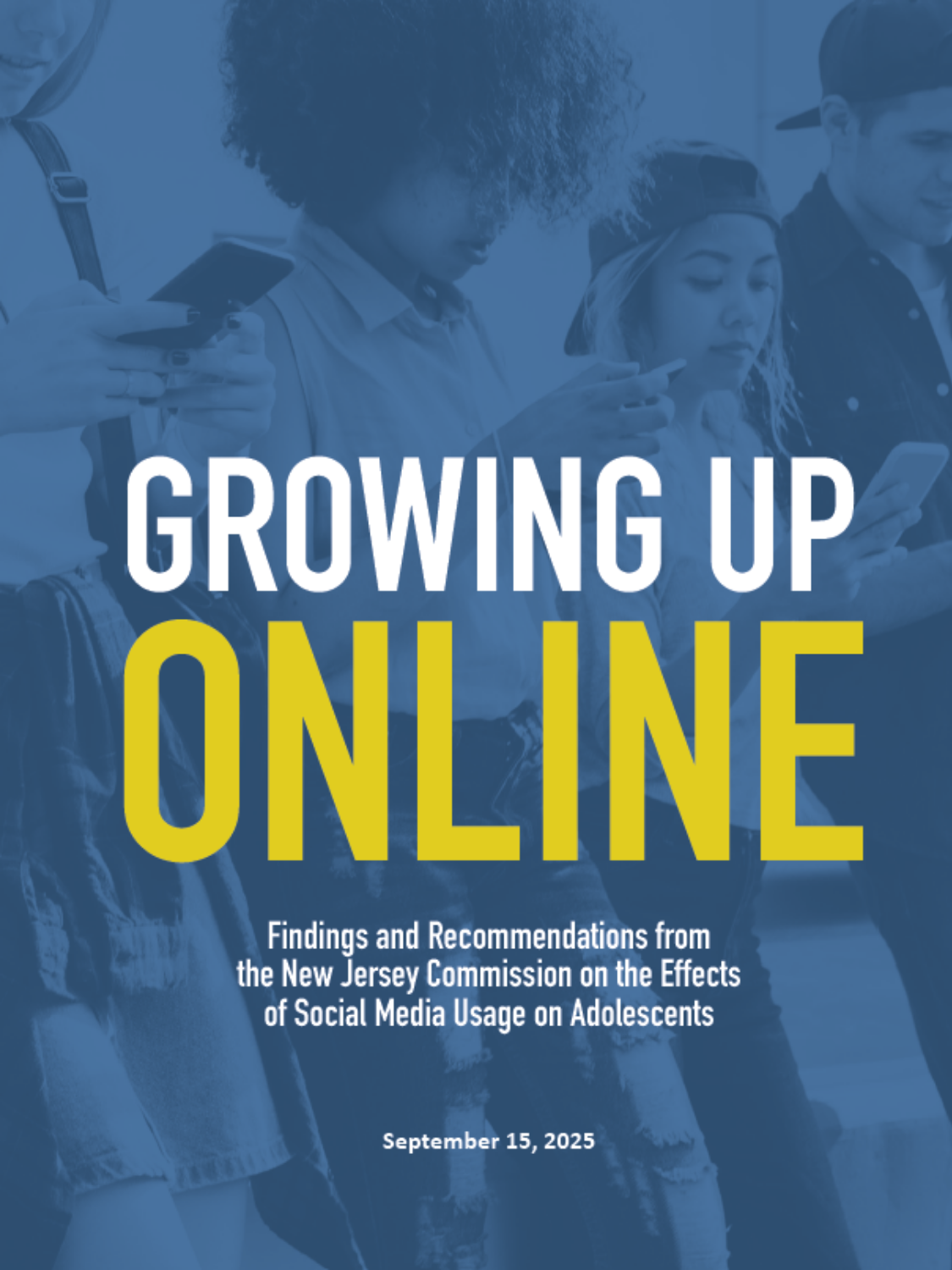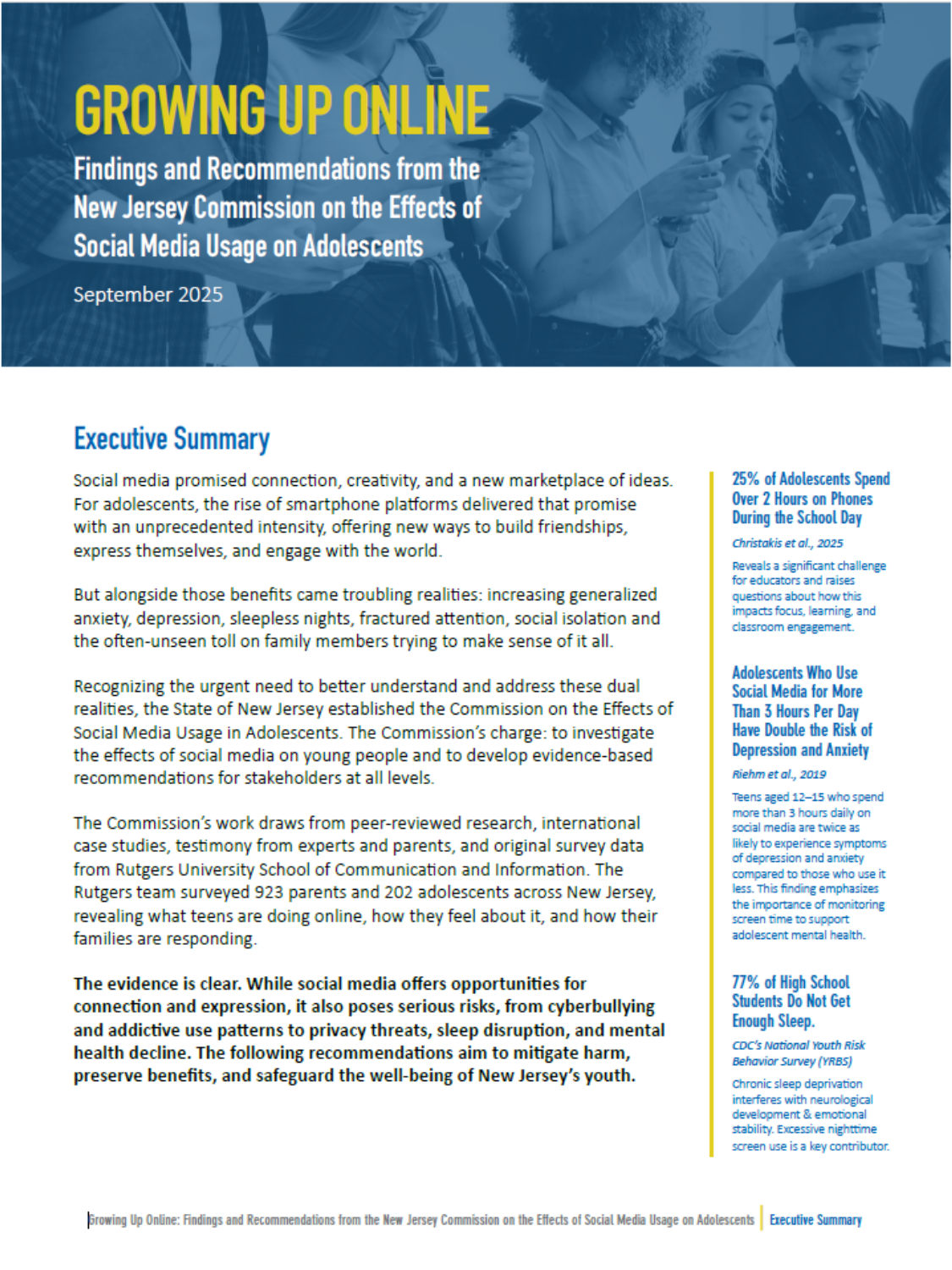Student Digital Wellness
In today's increasingly connected world, cell phones and other internet-enabled devices are integral to how students communicate, access information, and engage with the broader world. However, the unregulated use of these devices during the school day can result in lower academic performance, harm to emotional well-being, and deterioration of a positive school climate In response to these concerns, the New Jersey Department of Education (NJDOE) has developed a new guidance document to support districts in crafting thoughtful, inclusive, and age-appropriate policies based on research and best practices that allow for flexibility in local implementation.
The purpose of the guidance is to provide New Jersey public school districts, including charter schools and renaissance school projects, with guidelines for developing and implementing local policies governing the use of internet-enabled devices by students during the school day, on school buses, and at school-sponsored events. The guidelines aim to promote student well-being, academic engagement, and digital safety by offering policy considerations, implementation strategies, and a range of recommendations across grade levels to equip districts to tailor student use of personal internet-enabled device policies to their unique community needs.
Student use of internet-enabled device policies that are thoughtfully designed, developmentally appropriate, and equitably enforced can play a crucial role in supporting student focus, fostering healthy peer relationships, and minimizing digital distractions. These guidelines provide New Jersey school districts with considerations and suggestions to establish local policies that reflect community values, meet legal obligations, and prioritize student success. By aligning policy design with evidence-based research, districts can create safer, more connected, and academically supportive school environments that benefit all learners.

Balancing the value of technology in education with the need to manage cell phone use requires thoughtful consideration. By grounding decisions in research and maintaining open communication with the school community, school leaders can create environments that support both learning and well-being.
Below are recommendations for developing effective cell phone policies:
- Adopt Clear Policies on Device Use: Determine if the school district prefers to adopt a bell-to-bell ban policy or one that limits use during the school day. At minimum, schools should, with limited exceptions, prohibit the use of personal internet-enabled devices during instructional time for students in kindergarten through grade 12. Policies should include but not be limited to specific information on device types, device storage options, exceptions, and emergency communications.
- Communicate with Stakeholders: Involve families/caregivers, teachers, and students in the discussion to ensure the policy reflects the community’s values and concerns. This approach helps balance the benefits of technology with the need for focused learning environments.
- Provide Education on Responsible Use: Educate students and families/caregivers about the potential negative effects of excessive cell phone use on their academic performance and mental health, while also acknowledging the role technology can play in supporting learning and connectivity.
- Monitor and Adjust Policies: Regularly review the policy's effectiveness with stakeholder input and adjust as necessary to address evolving digital trends. School districts are encouraged to share data on the policy’s impact during this process.
- The Effects of Smartphone Addiction on Learning: A meta-analysis
- Smartphone Bans, Student Outcomes and Mental HealthDiscussion Paper
- Cell Phones, Student Rights, and School Safety: Finding the Right Balance
- Centre for Economic Performance Discussion Paper:Technology, Distraction & Student Performance
- Cell Phones in Schools are a Complicated Issue
- State Policy Solutions to Combat the Impact of Smartphones and Social Media on Education
- UNESCO Story: Smartphones in School?
- Pew Research Center: Challenges Public K-12 Teachers Deal with in the Classroom
- Cellphone Bans in School are Back. How Far Will They Go?
 Official Site of The State of New Jersey
Official Site of The State of New Jersey


